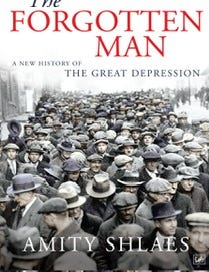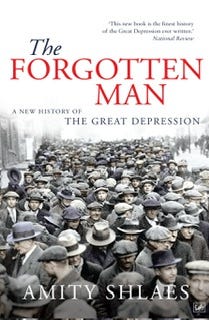DEFEND or DEFUND the CBC.
Debates re the CBC’s future should reflect the views of all Canadians. A referendum could help, but voluntary payment by subscription would best reveal its true value to average Canadians.
A lop-sided “debate”.
The Macdonald-Laurier Institute recently presented via Youtube on a panel about the future of the Canadian Broadcasting Corporation.
The webinar was moderated by Aaron Wudrick, Director of the Domestic Policy Program. The panel included…
Andrew Coyne, columnist at The Globe and Mail,
Peter Menzies, a senior fellow at MLI, a former newspaper executive, and a former Vice Chair of Telecommunications at the Canadian Radio-television and Telecommunications Commission, and
Tara Henley, a former CBC reporter and self-identified “lefty” who currently hosts the Substack podcast Leaning Out.
All four participants represented “the establishment view of public broadcasting” as it relates to the current state of the Canadian Broadcasting Corporation (CBC) and its supervision by the CRTC.
A lengthy podcast, the opening statements of Andrew, Tara and Jim are enough to clearly identify their stance on these institutions. Two of the three eloquently explained that, while they believe Canada needs a public broadcaster, the CBC is failing in it's mandate and must be reformed. The third proposed that a subscription model replace all tax-funding. This would force the CBC to compete on an equal and fair basis with every other broadcaster that must fight for market share in today’s era of highly competitive digital media.
The “establishment” bias.
I describe the views expressed by this panel as the “establishment view” because all members have enjoyed long and lucrative careers in mainstream media institutions prior to the digital media era. Careers as a successful journalist were predictable before the Internet crashed the stability and security of employment within the dominant corporate media institutions. As they began to face the potential of “precarious employment” from the steady decline of “legacy media”, these panelists must have realized that their job security and employment entitlements were no longer secure. They too would face the same competitive landscape of thousands of Independent media voices on the web.
Did the two panelists who expressed the need of a public broadcaster, paid by taxpayers, do so because they missed “the good old days?” It seemed to me that they arrived as naive if not self-serving conclusions that defend the CBC, even though they acknowledged it’s obvious failures. Besides their systemic bias, both the CBC and CRTC have many shortcoming that are typical of massive monopolies. Both pro-CBC panelists, in my opinion, suffer from a collectivist worldview that a reformed CBC would and could “serve the interests of all Canadians”. They are unable to even conceive of the possibility that this is not event remotely possible.
Overlooked again!
A while ago, I read a book by Amity Shlaes called The Forgotten Man. I was attracted to the title because I have felt like that man most of my life whenever political topics arose. The expressions “to the victor go the spoils” and “history is written by the victors” ring true in the vast majority of political debates.
We live in the unprecedented era of government-centric omnipotence. Past generations of Big Government voters have long since won the war against people like me who's voice is barely a squeak amid the nonstop cacophony of loud, squeaky wheels that represent special interest lobbyists who seek more money and legislative privileges from politicians and public institutions. As we all know, “the squeaky wheel gets the oil” is only true if the noise is loud and irritating enough.
As an Advocate for Less Government, and an ardent believer in the Freedom Of Informed Choice, this featured WLI podcast failed to represent any non-statist voices like mine. Perhaps next time, the Wilfred Laurier Institute will invite me to the panel so that the full spectrum of statist and anti-statist views could be presented for public consumption?



